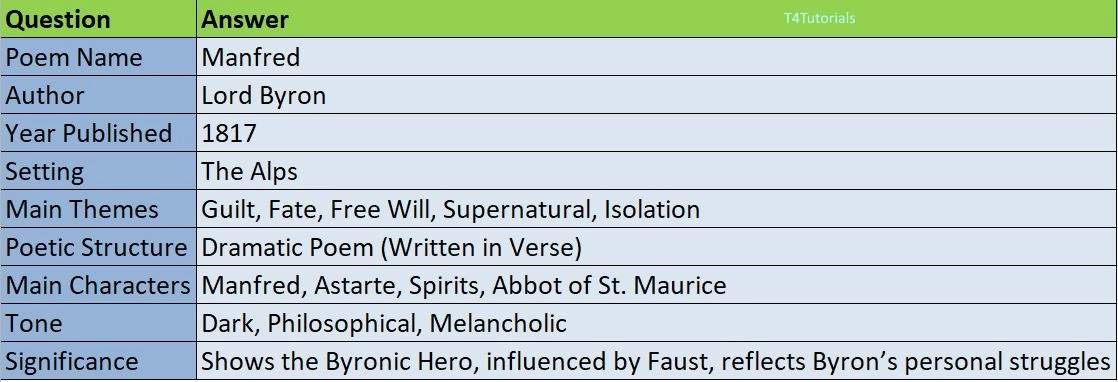Summary:
“Manfred” is a dramatic poem by Lord Byron, first published in 1817. It follows the story of Manfred, a tormented and guilt-ridden nobleman who lives in isolation in the Alps. Unlike traditional plays, Manfred lacks a conventional plot and instead explores philosophical themes through dialogues with supernatural beings. Manfred is haunted by a mysterious guilt, hinted to be related to the death of a woman named Astarte, whom he deeply loved. Seeking to escape his suffering, he summons spirits, witches, and supernatural forces, but they refuse to grant him forgetfulness or redemption. He ultimately rejects both divine salvation and demonic control, choosing to face his fate alone. The poem reflects Byron’s own struggles, especially his exile from England due to scandal, and embodies the Byronic Hero—a proud, defiant, and tormented individual. Manfred is also influenced by Goethe’s “Faust”, but unlike Faust, Manfred does not seek knowledge or power—he desires oblivion and self-determination.
10
Score: 0
Attempted: 0/10
Subscribe
| Question | Answer |
| Poem Name | Manfred |
| Author | Lord Byron |
| Year Published | 1817 |
| Setting | The Alps |
| Main Themes | Guilt, Fate, Free Will, Supernatural, Isolation |
| Poetic Structure | Dramatic Poem (Written in Verse) |
| Main Characters | Manfred, Astarte, Spirits, Abbot of St. Maurice |
| Tone | Dark, Philosophical, Melancholic |
| Significance | Shows the Byronic Hero, influenced by Faust, reflects Byron’s personal struggles |